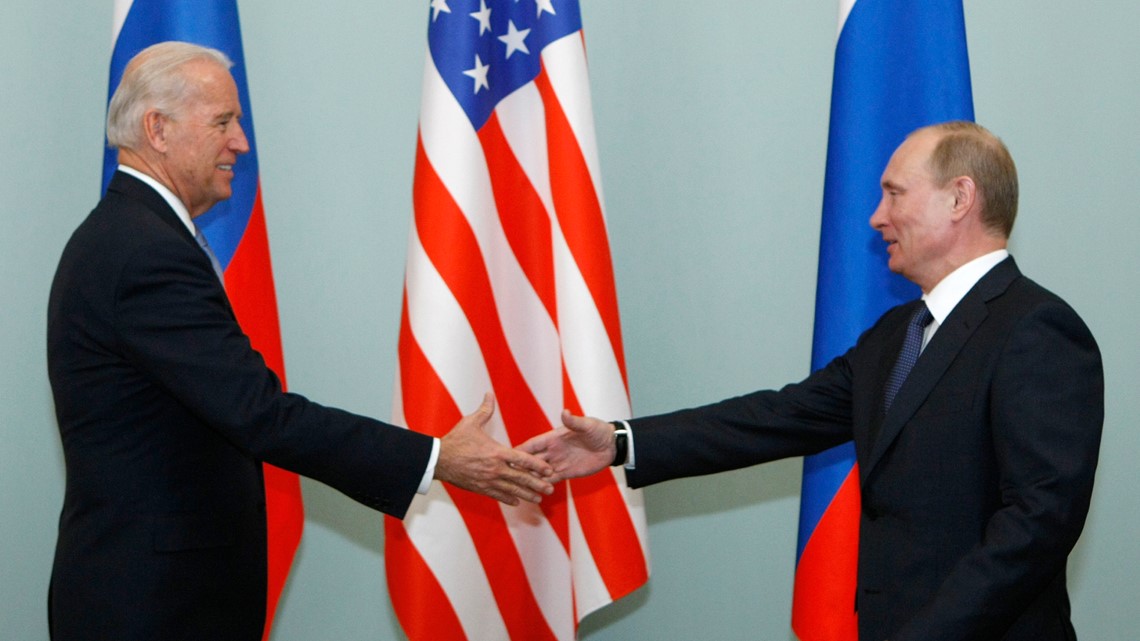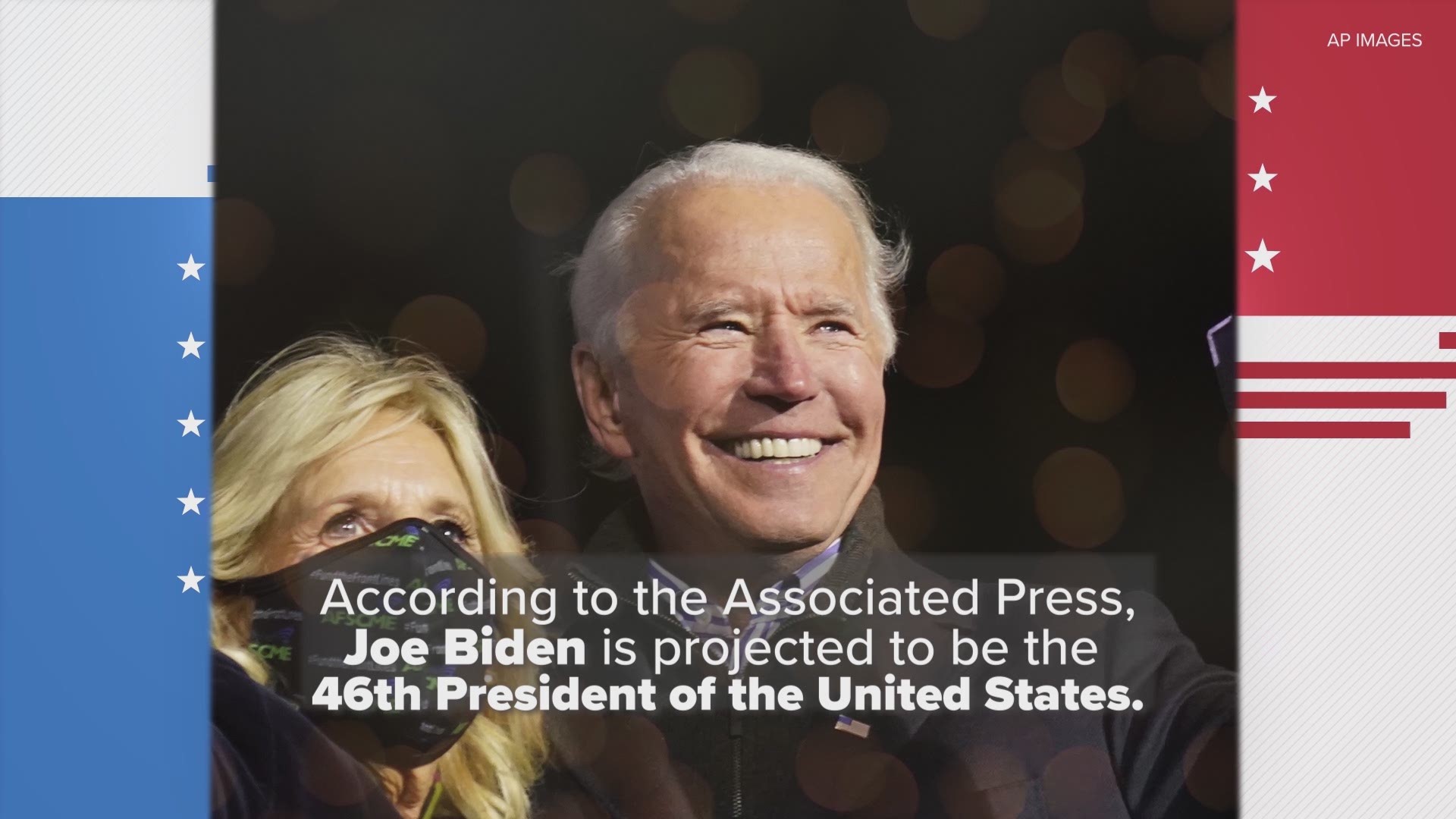MOSCOW, Russia — Russian President Vladimir Putin won’t congratulate President-elect Joe Biden until legal challenges to the U.S. election are resolved and the result is official, the Kremlin announced Monday.
Putin is one of a handful of world leaders who have not commented on Biden’s victory, which was called by major news organizations on Saturday. But President Donald Trump's team has promised legal action in the coming days and refused to concede his loss, while alleging large-scale voter fraud, so far without proof.
When Trump won in 2016, Putin was prompt in offering congratulations — but Trump's challenger in that election, Hillary Clinton, also conceded the day after the vote. Putin's spokesman Dmitry Peskov told reporters Monday that this year is different.
“Obviously, you can see that certain legal procedures are coming there, which were announced by the incumbent president — therefore this situation is different, so we consider it correct to wait for the official announcement,” he said.


The leaders of China, Brazil and Turkey also are holdouts in offering congratulations. And Mexican President Andrés Manuel López Obrador also said he would wait to comment until the legal challenges over the vote were resolved.
Chinese Foreign Ministry spokesman Wang Wenbin on Monday offered a similar explanation of why President Xi Jinping has stayed silent.
“We understand the presidential election result will be determined following U.S. laws and procedures,” he said.
Peskov suggested that when the time comes, a congratulations message from Putin would come with all the expected protocol.
“I remind you that Vladimir Putin said more than once that he will respect any choice of American people, and will be ready to work with any chosen president of the United States,” he said.
For now, Putin's holding back allows a delay in addressing that fraught question of how to improve relations. Although Russian politicians widely lauded Trump's election in 2016, expecting him to make good on his promises of improving relations, his administration disappointed Moscow by enacting sanctions, expelling scores of Russian diplomats in the wake of the poisoning of double agent Sergei Skripal and authorizing lethal weapons sales to Ukraine.
But Russia is characteristically wary of Democratic U.S. administrations because they tend to be more forward about criticizing Russia on human rights and democracy issues.
Biden, in a 2011 trip to Russia while vice president, epitomized that approach in a speech at Moscow Statue University, the country's most prestigious higher education institute.
“Don’t compromise on the basic elements of democracy. You need not make that Faustian bargain," he told students.

